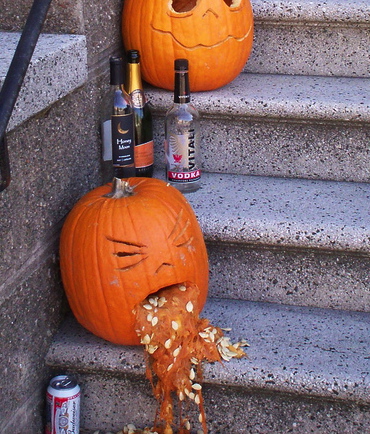Sober Up, USC

Last week, the University of Southern California held a town hall meeting for students to discuss alcohol consumption. The school’s reputation for heavy drinking and partying isn’t new, but recently incidents of alcohol-related injury have escalated to an egregious level.
Earlier this month, USC officials shut down the Greek social scene, otherwise known as “The Row,” after eight students were taken to the hospital for alcohol- and party-related incidents in just one weekend, including one who suffered a serious head injury. As of last week's town hall, there had been “twenty alcohol-related hospitalizations" in October alone.
The death of USC sophomore Thu Yain “Roy” Kyaw, which has been tentatively linked to alcohol poisoning, has brought this issue to its tragic climax. Kyaw’s passing has generated much conversation about drinking at USC and the university’s responsibility for keeping its students safe.
SEE ALSO: USC Student Cause Of Death Possibly Alcohol-Related
Many of the opinions I’ve heard on the issue put the blame on USC for failing to educate students about safe alcohol consumption. They think that by cracking down on parties and placing a flat ban on underage drinking, USC loses the opportunity to teach students (many of whom will find ways to drink anyway) how to drink responsibly.
But the real problem isn’t how USC educates students about alcohol or deals with excessive drinking.
The problem is that they have to do these things in the first place. The problem is that alcohol at USC is a social necessity, and that excessive drinking is a large component of our culture. By providing the “realistic” drinking education that many of my peers advocate, USC would be condoning this drinking culture and accepting it as unchangeable.
SEE ALSO: USC, Don't Ground Greek Row
What they need to do instead is to help their students, particularly their underage students (including students like Roy Kyaw, who was just 20 when he died) build a social community that doesn’t revolve around alcohol.
Honesty time: I’ve never been drunk. No big deal—I just don’t like the taste of alcohol or how drinking it makes me feel. Luckily, I had a group of friends in high school who weren’t really into it either, so it was easy to have fun sober. When I chose to come to USC this fall, I wondered if things would be different: I knew that USC had a reputation as a party school, but I thought that because USC is so large, it would be easy to find fun things to do that didn’t involve getting drunk. I was wrong.
Before coming here, I would never have considered my sobriety a defining trait. Not liking booze, I still believe, is a trivial part of my personality. But at USC, it sets me apart—often to the point of isolation. There have been nights in my dorm when I’ve looked around and realized I’m the only one who’s not drunk. I try to hang out with my friends while they drink, but it’s not a great time.
Sober, you realize the jokes aren’t funny and the games aren’t fun.
Often, I see someone get offered a drink that they initially try to refuse. But the pressure to party harder and to “keep up” is hard to turn down, especially for guys, so they give in and drink even when they don’t want to anymore.
Sometimes, I wonder if I’m being stupid, if I’m ostracizing myself by not drinking. But seeing that other people are reluctant or at least sometimes uncomfortable participating in this "party hard" culture makes me feel a little better, because it means that I must not be alone. In fact, there may be enough of us out there to get together and come up with some more interesting ways to spend a Saturday night.
It would take some effort. Most of USC’s popular activities involve some kind of heavy boozing, from Thursday night parties to Saturday tailgates. For those who use alcohol as a social lubricant, it would be difficult and probably really uncomfortable to get used to socializing without the aid of a few shots. But building a more sober social community would help students connect on a more genuine level. Social life would be safer, and for many, more enjoyable, if the pressure to drink and get drunk were not so high.
USC has a huge part to play in this social reconfiguration. Trying to educate underage students on how to drink responsibly is not the way to go. The “accepting and educating” policy promotes the very behavior it intends to prevent, because it normalizes and further perpetuates the idea that drinking at USC is unavoidable and socially necessary. Instead, USC needs to play a more active role in helping students organize alcohol-free activities and events that are legitimately interesting and cool. It would be great if this happened under the leadership of some savvy social planner, but a more realistic solution might be providing more funding to designated student groups so we can plan the events ourselves.
In light of last weekend’s tragedy, it’s clear that USC’s attempts to manage alcohol abuse aren’t working. In memory of our fellow Trojan, it’s time to stop treating the symptoms of our alcohol-centric culture and start figuring out how to eliminate the cause.
Reach Contributor Gigi Gastevich here.



